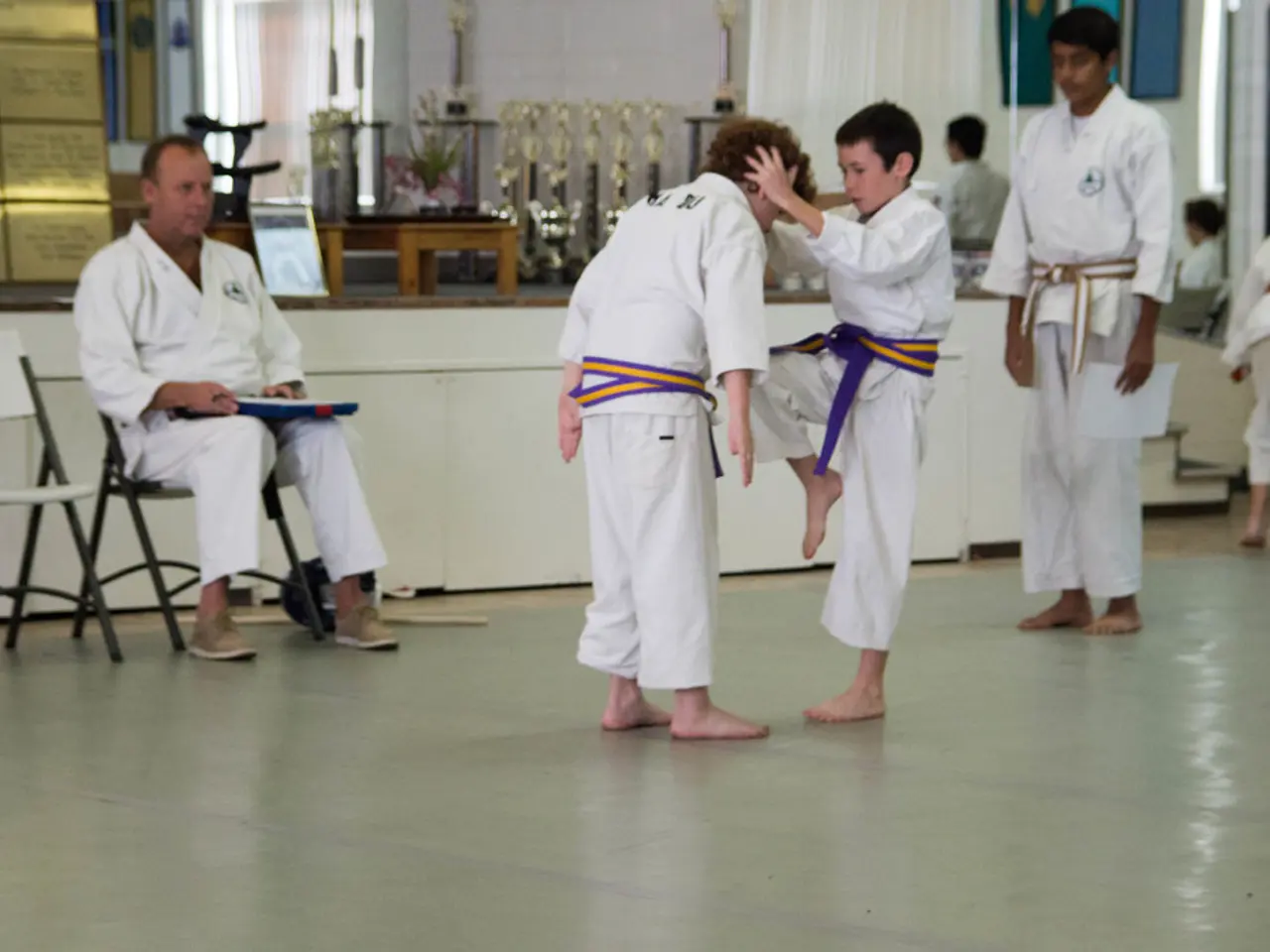Montessori Philosophy in Action: Emphasis on Liberty, Concentration, and Authentic Materials
At the heart of the Museo dei Bambini lies an approach to early childhood education that encourages independence, self-discovery, and a love for learning – the Montessori method. This educational philosophy, inspired by Dr. Maria Montessori, is integrated into the museum's exhibits, offering a unique learning experience for young visitors.
The Montessori approach is based on the belief that children learn best through hands-on interaction with meaningful materials in a prepared environment. At the STEM Baby Library, for instance, materials are arranged by size, color, and texture, inviting exploration and independence. This calm and slow-paced environment allows for deep learning, a key principle of the Montessori method.
One of the most captivating exhibits is the Magnet Maze, a quiet, self-correcting activity that captivates a child's attention and allows them to repeat a task until they've mastered it. Parents often comment on their children's focus and concentration in Montessori-inspired spaces like these.
Another exhibit, the Builder's Bench, allows children to use real tools to construct simple projects. This not only develops fine motor skills but also fosters a sense of mastery. Educators at the museum often witness long periods of focused attention, particularly at the Builder's Bench, where children return repeatedly to refine their work.
The Mini Trail Blazer encourages children to navigate with purpose, promoting self-directed learning and exploration. This exhibit, along with others, supports the Montessori principle of auto-education – learning through hands-on activities and self-correcting materials.
The Ball Climb invites children to repeat a simple task, observing changes in speed, bounce, and trajectory. This mirrors Montessori's belief in repetition as a path to mastery.
Respect for the child is another cornerstone of the Montessori method. Recognizing each child's individuality, abilities, and developmental pace fosters autonomy and self-confidence. The museum's exhibits give children space, tools, and freedom to follow their interests, reflecting this principle.
The Montessori philosophy emphasizes the importance of slowness, simplicity, and intentionality in a fast-paced world. A 2006 study published in Science found that children in Montessori classrooms performed significantly better in reading and math and showed more positive social behavior. Furthermore, a 2006 study conducted by researchers at the University of Virginia found that Montessori students exhibited advanced executive function skills compared to peers in traditional educational settings.
A 2019 study published in PLOS ONE highlighted the link between Montessori education and enhanced creativity, which supports academic achievement. A 2022 study published in Child Development reported significant improvements in school readiness across multiple domains for girls in a Montessori-based early childhood education initiative in rural Nigeria.
In essence, the Montessori method is about preparing children for life, building foundations for resilience, focus, and self-confidence through self-directed learning and real-world problem-solving. The exhibits at the Museo dei Bambini embody this philosophy, offering a unique and engaging learning experience for young visitors.
The unique exhibits at the Museo dei Bambini, such as the Magnet Maze and the Builder's Bench, embody the Montessori method's emphasis on hands-on learning and self-discovery, encouraging bambini to explore, focus, and master tasks independently. Incorporating technology and tools, the museum's lifestyle fosters education-and-self-development, further emphasizing self-confidence and independence in the 21st-century learning environment.




